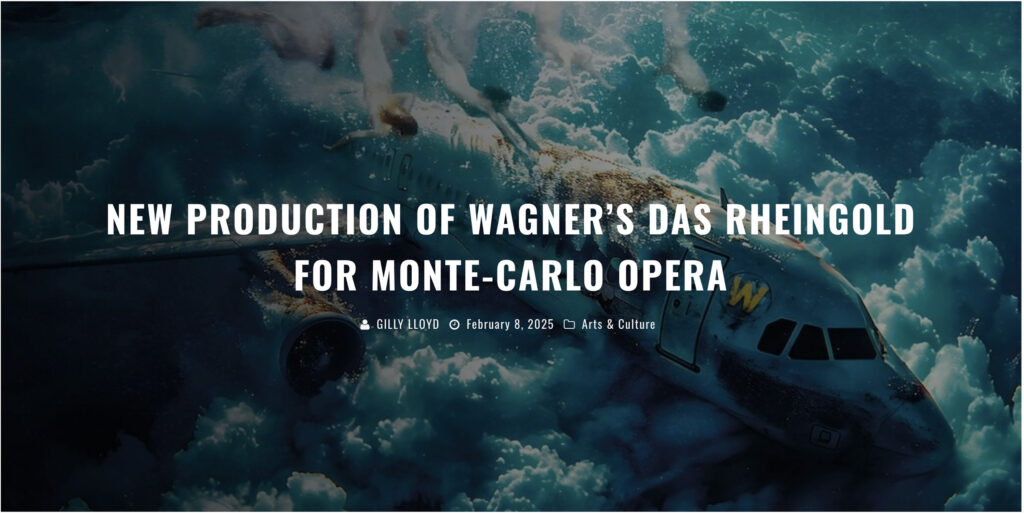
Monte-Carlo Opera stages Das Rheingold, the first part of Wagner’s epic Ring Cycle tetragology, in a new production by Davide Livermore. The opera stars Christopher Purves as Wotan, the ruler of the Gods, and Gianluca Capuano leads Les Musiciens du Prince – Monaco.
The Ring Cycle is Wagner’s portrayal of a universe destroyed by greed, the need for power and the denial of love. One of the most monumental opera projects ever undertaken, it comprises 15 hours of music, and takes place in four different dramas – Das Rheingold (The Gold of the Rhine), Die Walküre (The Valkyrie), Siegfried and Götterdämmerung (The Twilight of the Gods).
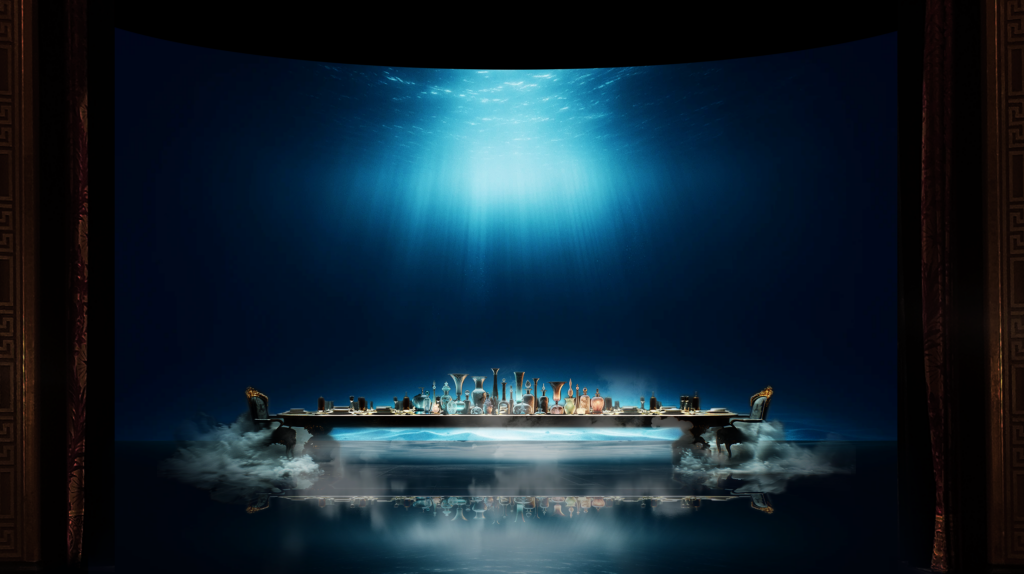
Wagner started writing the poem, on which the Ring Cycle was based, in 1849, fleeing from Dresden to Switzerland against a backdrop of political upheaval. He took four years to complete it, basing it on ancient myths and legends, choosing old Norse myths, Icelandic sagas, and the German medieval poem The Song of the Nibelung as his inspiration. He then spent 21 years writing the music and, because he claimed that an adequate opera house for the staging of his epic work didn’t exist, he built the Bayreuth Festival Theatre where the first complete performance of the Ring Cycle took place from 13th to 17th August, 1876. It is now one of the central works of the classic operatic repertoire, taking four evenings to complete all four works.
The Cycle as a whole tells the story of Wotan who desires to create a society in which humans can live in total freedom. This aim is constantly thwarted, not only by Wotan himself, but by the conflict created by the needs of society and those of individual beings, and also by the limits and corruptibility of these beings, which continues to plague both gods and mortals through the next three operas.
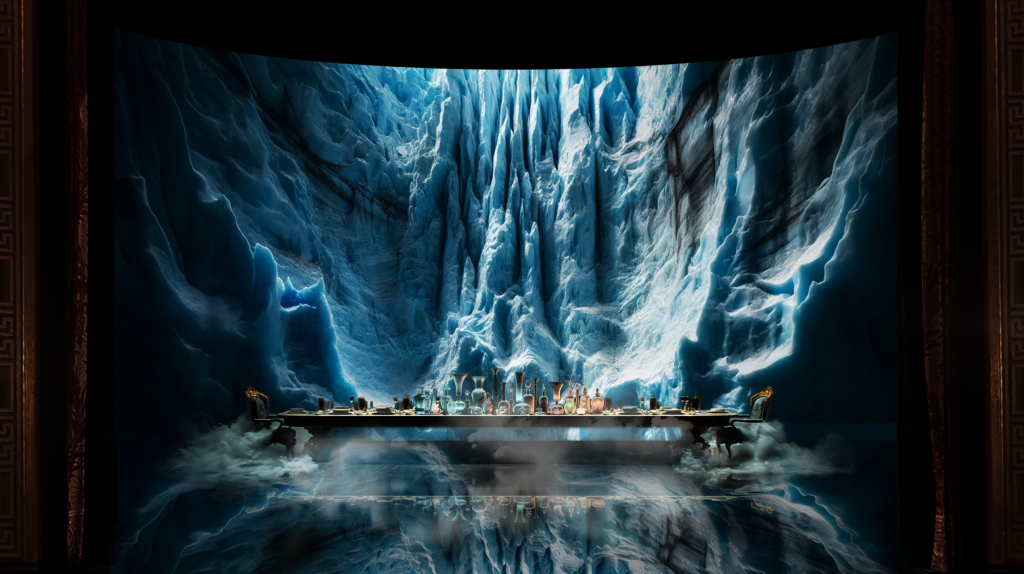
Das Rheingold – which serves as a Prologue to the following works – establishes the power and the curse of the ring made from Rhinegold. It tells how the ring serves as a talisman, giving those who possess it absolute power and how this will bring into existence a world ruled by fear and greed. Wotan discovers that the gold has been stolen by the nibelung Alberich from the protection of the Rhinemaidens. Wotan had promised to pay the giants Fasolt and Fafner, and the goddess Freia (his wife’s sister) for building Valhalla, but since they have all learned of the power of the gold, the giants ask him to retrieve that instead.
Wotan suspects that Alberich might already have created the ring, and, in this event, would be more powerful than all the Gods. This terrifies the Gods, and they fear that if the giants take Freia, their eternal youth will also fade. Therefore Wotan must retrieve the Rhinegold, and he and Loge set about so doing. They take Alberich captive, demanding that he hand over all of the gold, including the ring. Alberich, in tearing the ring from his finger, swears a curse that the ring will only bring misery and murder, and whoever wears it will be its slave. This sets the stage for the following three operas.
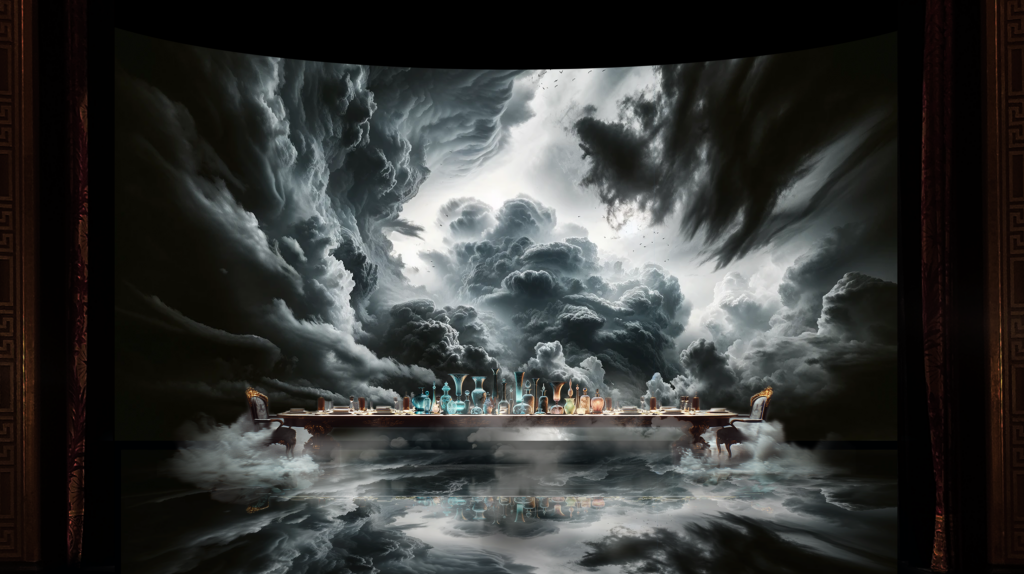
Davide Livermore has brought this production forward to the 20th century. He says: ”It’s a game inspired by Wagner, built around pure phantasmagoria. We explore a kind of ‘imaginary’ historical period: the 1940s are not approached in a strictly historical way but rather used as a fantastical setting. Some elements may reference that era, but they are not tied to real history. What we propose is a ‘fantastory’: an approach where the fantastic, so dear to Wagner, becomes the driving force behind a grand narrative.”
In the role of Wotan is British baritone Christopher Purves, who – according to The Financial Times – has a voice with “a noble timbre and is informed by the keenest intelligence”. He has received much praise for the diversity of his repertoire and has a highly successful career on both concert and operatic stages. He has appeared in Handel’s Messiah in Perth, Adelaide, Melbourne and with the Washington Symphony Orchestra, in Bach’s St John Passion at the Concertgebouw, Amsterdam, in St Matthew Passion with the Academy of Ancient Music, as well as in the title role in Puccini’s Gianni Schicci at Opera North, the role of Golaud in Debussy’s Pelleas et Melisande at Welsh National Opera and in the title role in Handel’s Saul at Glyndebourne Festival Opera. Following this appearance in Monte-Carlo, Purves will repeat the title role in Verdi’s Falstaff at Staatsoper Hamburg.
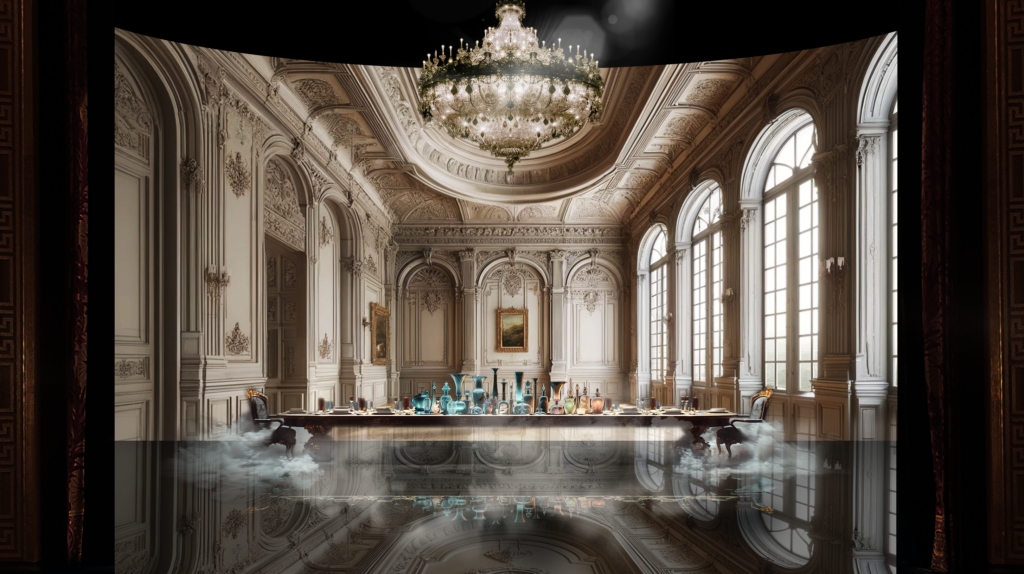
Also in the cast are Péter Kálmán as Alberich, Wolfgang Ablinger-Sperrhacke as Loge, David Soar as Fasolt, Wilhelm Schwinghammer as Fafner, Varduhi Abrahamyan as Fricka, Mélissa Petit as Freia and Woglinde, Ekaterina Semenchuk as Erda, Kartal Karagedik as Donner, Omer Kobiljak as Froh, Kayleigh Decker as Wellende, Alexandra Kadurina as Flosshilde and Michael Laurenz as the Mime.
Gianluca Capuano leads Les Musiciens du Prince – Monaco in four performances of Wagner’s Das Rheingold at Opéra Monte-Carlo between February 19 and 25. Further information and details of ticketing are available on the Monte-Carlo Opera website.
Information sourced from:
Monte-Carlo Opera programme notes
Opera SB
All iconography courtesy of Monte-Carlo Opera
This article first appeared in Riviera Buzz

Leave a Reply